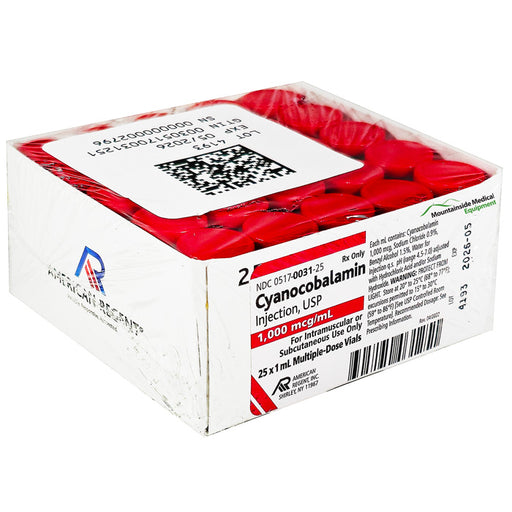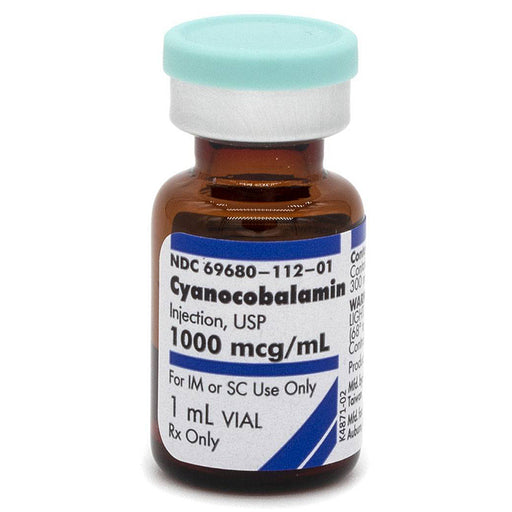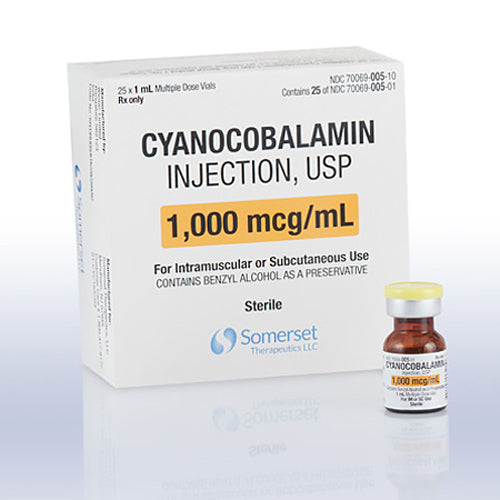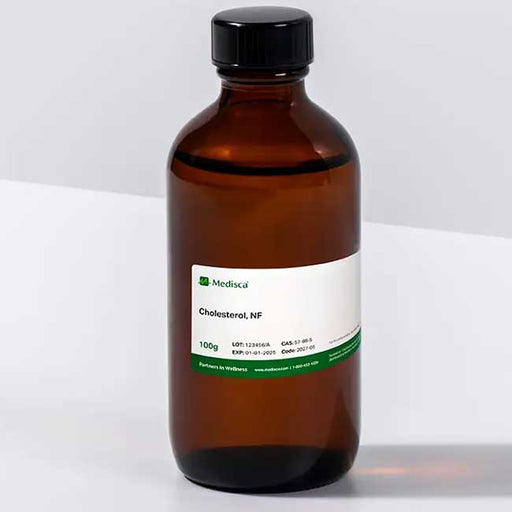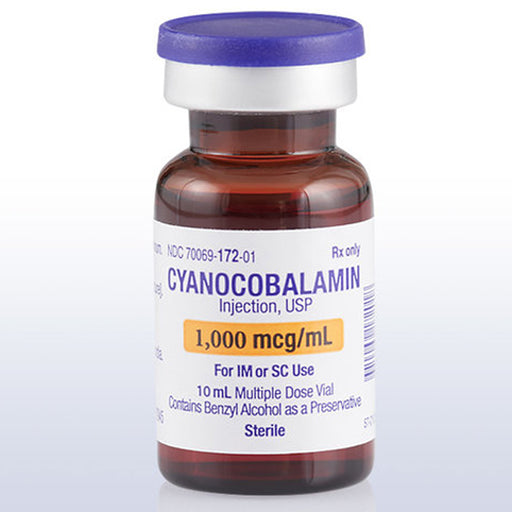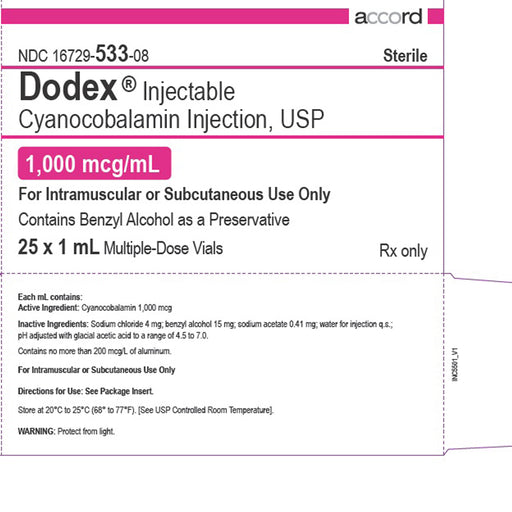-
What does a vitamin B12 injection help with?
Vitamin B12 injections help with boosting energy levels, improving mental clarity and focus, regulating metabolism, supporting red blood cell production, and preventing vitamin B12 deficiency. They are effective in combatting fatigue, anemia, mood swings, and "brain fog.
-
How long does a B12 injection shot last?
The effects of a B12 shot can last anywhere from one week to several months, depending on individual needs, metabolic rate, and underlying deficiency severity.
-
Do I need a prescription for vitamin B12 injections?
Yes, in most countries, Vitamin B12 injections require a prescription from a healthcare provider, especially when administered as a treatment for deficiency or medical conditions.
-
Can a B12 shot cause diarrhea?
While rare, some individuals may experience minor digestive changes such as mild diarrhea after a B12 shot. This side effect is usually temporary.
-
How soon will I feel better after a B12 injection?
Many users report feeling improved energy and clarity within 24 to 72 hours after their first injection.
-
Who is most likely to need B12 injections?
Vegetarians & Vegans Older adults People with pernicious anemia or GI absorption disorders (like Crohn's or celiac disease) Individuals after certain surgeries (such as gastric bypass) Pregnant women People on chronic metformin or proton pump inhibitors (PPIs)
-
How much does a B12 shot typically cost?
The cost ranges from $20 to $100 per injection, depending on provider, location, and whether it includes consultation.
-
What should you not do after a B12 shot?
Avoid strenuous physical activity immediately after your shot. Also, refrain from massaging the injection site vigorously.
-
What are the early signs of B12 deficiency?
Extreme fatigue Weakness Tingling in hands and feet Memory problems Difficulty concentrating (“brain fog”) Pale skin Mood changes
-
What food is highest in B12?
Animal-based foods: Clams, sardines, beef liver, tuna, salmon, dairy, and eggs, are highest. Plant-based diets usually fall short unless fortified.
-
Where is the best place to inject B12?
Vitamin B12 is best injected intramuscularly into the deltoid (upper arm), thigh, or gluteal muscle (buttocks).
-
What medications cannot be taken with B12?
Some medications that may interfere include metformin, PPIs, chloramphenicol, some antibiotics, and anticonvulsants. Always consult your healthcare professional.
-
What are the negatives of B12 injections?
Negative effects are rare but may include: Mild discomfort at the injection site, temporary diarrhea, allergic reactions, or rash.
-
Can B12 help with anxiety?
Yes, restoring B12 levels has shown to help reduce anxiety and mood swings associated with deficiency.
-
Do you sleep better after a B12 injection?
Many people report improved sleep quality after correcting a B12 deficiency, as B12 supports melatonin and serotonin production.
-
Does B12 help with brain fog?
Absolutely! B12 injections are highly effective at eliminating brain fog, improving memory, and boosting mental focus.
-
Do vitamin D and B12 work together?
Absolutely! Both promote energy, immune function, mood balance, and overall health. Vitamin D enhances B12 benefits for holistic wellness.
-
What does cyanocobalamin injection do?
Cyanocobalamin is an active, easily absorbable form of B12 that corrects deficiencies and supports vital biological functions: nerve health, red blood cell formation, cell metabolism, and DNA synthesis.
-
What is the difference between B12 and cyanocobalamin?
Vitamin B12 is the general term; cyanocobalamin is a specific, synthetic, and highly stable form of B12 commonly used in injections.
-
Why are doctors stopping B12 injections?
Some physicians limit B12 shots only to those with documented deficiencies or absorption issues to prevent unnecessary treatment where dietary B12 is sufficient. However, for many, injections remain essential.
-
Why Choose Our Vitamin B12 Injections?
Our high-purity, medical-grade cyanocobalamin B12 injections are trusted by healthcare professionals. They are made in the USA, free from allergens, and offer maximum absorption for fast, effective results. Stop waiting weeks for oral supplements. Take charge of your health and vitality today!



